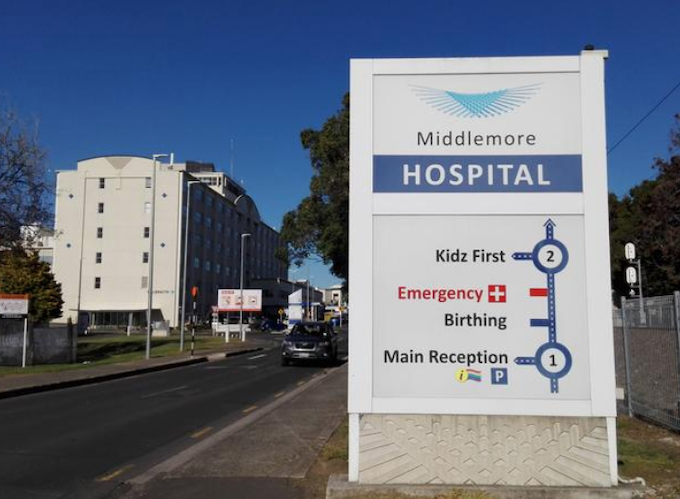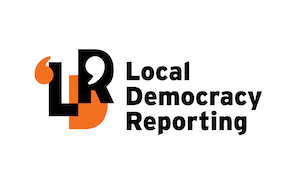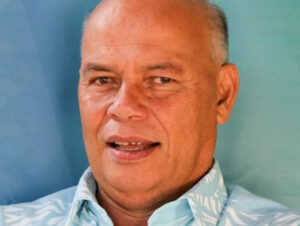
LOCAL DEMOCRACY REPORTING: By Justin Latif, Local Democracy reporter
If New Zealand’s border restrictions are loosened for arrivals from countries with high covid-19 numbers, South Auckland will see between 1000 and 1400 cases a week — even if vaccination rates get to 90 percent, according to modelling carried out by the Counties Manukau District Health Board (DHB).
Under the modelling prepared for the DHB, if strong border controls and public health measures remained in place and the vaccination rate reached 90 percent, the Counties Manukau region would see only 40 cases and one hospitalisation per week.
This number jumps to 200 cases per week if vaccination rates reach only 80 percent.
- READ MORE: Covid-19: 43 new cases in NZ community today
- Other NZ covid lockdown reports
- More Local Democracy Reporting stories

The scenario gets grimmer for South Aucklanders if border and public health restrictions are lifted.
The DHB’s modelling shows there will be at least 1000 cases and 30 hospitalisations per week with a 90 percent vaccination rate, or 1400 cases and 45 hospitalisations if vaccination rates reach only 80 percent.
Given rates remain well below 80 percent in much of South Auckland, University of Auckland public health associate professor Dr Collin Tukuitonga said the modelling was too conservative.
“I think the vaccination rates are too ambitious and I think we will probably get more cases than 1000 a week,” Dr Tukuitonga said.
“And as a result, it will have a greater impact on Māori and Pacific people. This could get totally out of control – in terms of what we’ve experienced in New Zealand up to now.”
Pressure already immense
The pressure on Middlemore Hospital was already immense given “Māori and Pacific are most affected by the inequities in our society”, Dr Tukuitonga said.

“If the government loosens public health measures, there will be more cases, and that’s the risk people need to be aware of.
“The problem for Middlemore is that they are already stretched to their full capacity, even without covid, as they are underpowered to serve the population size that exists within Counties Manukau.”
At the opening of a mobile vaccination bus last month, Counties Manukau Health Chief Executive Margie Apa said the hospital had already been working hard to increase its capacity for covid-19 patients.
“We have done quite a lot of preparatory work to increase our ICU [intensive care unit] and high-dependency units,” she said.
“But what that does do is take bed stock out of being able to look after the rest of our non-covid patients.”
According to a DHB spokesperson, the hospital has 18 intensive care unit (ICU) beds, seven high dependency unit (HDU) beds and a special respiratory ward for covid-19 patients.
Planning capacity increase
It is also planning ways to increase “hospital capacity to care for all patients in a safe way”, the spokesperson said.
“Middlemore Hospital has been the epicentre of the covid-19 Delta outbreak with more than 1000 cases since the pandemic began in the Counties Manukau region.
The team’s experience is now being applied to how services and patient care will be provided in the future.”
A medical specialist familiar with Middlemore Hospital and its intensive care unit said given what the modelling shows and the hospital’s capacity, the implications for South Aucklanders with pre-existing conditions were “very serious”.
“When a person goes into intensive care with covid, they can spend up to 16 hours a day lying on their stomachs and are spending between four to six weeks in there.
“If every week you get just a tenth of hospitalisations going into ICU, you’re still going to get pretty overwhelmed pretty quickly.”
Lot of people suffering
An increase in covid-19-related deaths was “a reasonable assumption to make, and there will also be a lot of people just suffering, as they are unable to get the relief they were hoping to get from other interventions that had been planned but will be delayed,” he said.
Opening the vaccination rollout to all Māori and Pacific people from the start, and having it led by South Auckland providers, was the only way for the current scenario to have been avoided, he said.
“The people of South Auckland have borne the brunt of so much for so long, and you have to think they have been let down.
“They should have been listening to people on the ground but it seems they never learn.”
Local Democracy Reporting is a public interest news service supported by RNZ, the News Publishers’ Association and NZ On Air. This article is published by Asia Pacific Report in partnership with LDR.









































